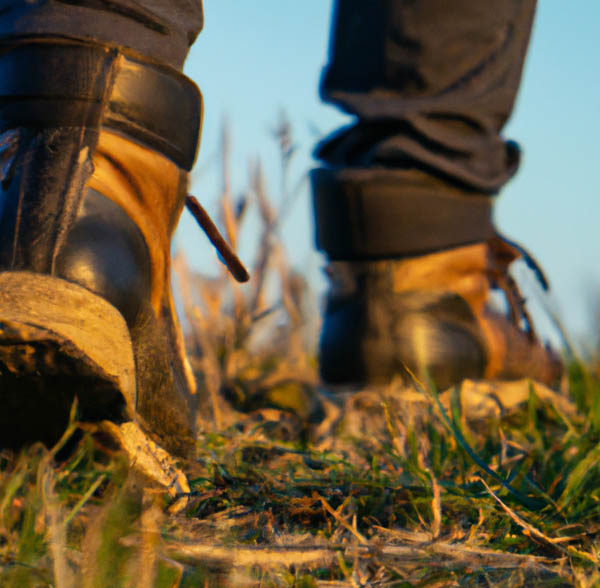
Taking a hike can be a great way to get some exercise and enjoy the outdoors. However, if your feet are hurting, it can make things difficult.
In this article, we will take a look at 7 ways to prevent foot pain when hiking.
1: Wear Appropriate Footwear For The Terrain
When it comes to hiking, it is important to wear appropriate footwear suitable for the terrain. This means having shoes that are sturdy and fit comfortably. Hiking boots are a good option for those who want extra protection. If you are unsure of what type of hiking boots to buy, visit a store and try on a few pairs. Be sure to pay attention to the width and length of the boot as well as the height of the heel to ensure your foot fits properly. Too tight a fit can cause blisters, while too loose a fit can lead to your feet slipping. When choosing footwear for hiking, it’s important that they’re comfortable and can protect your feet from injuries.
If you feel pain when first wearing a pair of new boots, it may be because the material is so stiff which is especially the case with tough leather boots. It’s recommended to use techniques to break in your hiking boots after purchasing to help prevent discomfort on long distance walks or trails.
Most hiking boots are waterproof or can be proofed using a spray. Make sure to keep your boots proofed to limit your footwear from getting damp to avoid discomfort.
2: Consider Purchasing A Custom Orthotic To Increase Arch Support
Hiking is a great exercise for people of all ages, but it can be especially challenging for those who suffer with foot pain, such as plantar fasciitis. If you’re experiencing foot pain on hikes, consider purchasing a custom orthotic insole to increase arch support. Orthotics are devices that help support your feet and improve your overall circulation. Orthotics can help relieve foot pain and improve your overall hiking experience.
3: Take Breaks When You Need Them And Avoid Extended Walking Sessions
When hiking, it is important to take breaks when you need them and avoid extended walking sessions. If you are hiking for an extended period of time, it is recommended to take short breaks every hour or so. This will help to avoid fatigue and ensure that your feet are properly taken care of.
4: Drink Plenty Of Water
Hiking can be a great way to get in some exercise and see some amazing scenery, but it can also be very strenuous on the feet. Make sure you drink plenty of water during your hike, especially if you’re sweating a lot or feeling any pain. This will help keep your feet hydrated and reduce the likelihood of them hurting. A lack of water can cause foot cramp so keep hydrated throughout your hike.
5: Avoid Extreme Heights
Hiking is a great way to get outside, see some of the country’s beautiful scenery, and make some fitness gains. However, it’s important to be aware of the dangers associated with extreme heights. Hiking to high elevations can cause your feet to hurt. If you’re experiencing foot pain while hiking, it’s important to avoid hiking to high elevations. Instead, try visiting lower-elevation trails or using a walking stick or other support if necessary.
6: Wear Socks Suitable For Hiking
Regarding hiking, it is important to wear socks that are specifically made for hiking. These socks will help protect your feet from rubbing and chafing, and they will also keep your feet dry. If you are unsure about what type of socks to buy, consider purchasing a pair of wool socks or a pair of athletic socks. Outdoor clothing stores, both on the high street and online, will usually sell socks especially for the purpose of hiking and trekking.
Socks that are breathable will allow cool air to circulate and help to keep your feet dry, whilst those with anti-bacterial properties will allow your feet to remain fresh throughout the walk by reducing the build-up of bacteria.
7: Use Painkillers If Needed
While hiking, it is important to be aware of any pain you may be experiencing so that you can take measures to address it. If your feet are hurting, you may want to consider taking painkillers in order to alleviate the discomfort. However, it is important to do your research and speak to your doctor before taking medication in order to avoid any potential side effects.
But is it normal for feet to hurt after hiking?
After a long hike, your feet may feel tired and sore. This is normal, and you should rest them as much as possible. If the pain does not go away after a few days, you should see a doctor to check for any injuries.
These are some easy steps that you can follow to help reduce foot pain on the trail. By following these tips, you will be able to enjoy your hikes whilst minimising any foot pain.

Be the first to comment